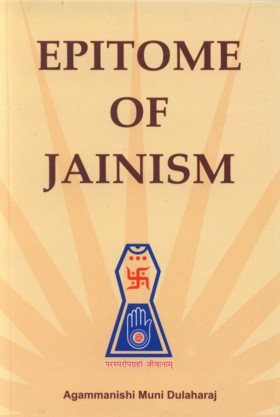MONKS:
Every Jain monk has to follow five Mahavrata's (Great Vows)
NONVIOLENCE:
Complete avoidance of physical, mental and vocal violence and equanimity of mind.
TRUTH:
To achieve equanimity of precept and practice.
NON-STEALING:
Not to take any thing without permission of its owner.
CELIBACY:
To practice purity of body, mind and speech in all matters including sex.
NON-POSSESSION:
To practice freedom of attachment to worldly posses-sions.
Along with these, a monk has
- To observe caution and care in move- ments.
- Not to use any means of transport but to walk barefoot throughout his life.
- To carry luggage on his own shoulder.
- Not to be negligent in the utilization of his few articles of daily use.
- To have restraint of speech.
- Not to indulge in political affairs.
- Not to entice people for sartorial bias.
- Not to accept anything specially pre-pared, purchased, brought and meant for him.
- To meet all the meagre necessities of life through bhiksha.
- For food he goes from house to house without any distinction of rich or poor, high or low, acquainted or unacquainted, Jain or non jain. But he should be a pure vegetarian.
- To practice concentration, contem-plation, meditation and penance according to his physical strength and mental faculty.
- To keep himself constantly engaged in religious discussions, discourses and studies.
- To work for the well- being of general masses according to his prowess.
- To exhort people in spiritual directions and Endeavour to make their day to day life moral.
- Not to accept or take any thing after sun- set.
Not to travel between sun-set and sun- rise.
Jain laity has also to observe Anuvratas (small vows).
These may be summarized as follows:
- To refrain from cruel activities.
- Not to exploit labour of others.
- Not to take undue advantage of others’ weakness.
- Not to deprive subordinates of their means of livelihood.
- Not to disclose the secrets of others which may entangle them in inextricable difficulties.
- Not to indulge in forgeries.
- Not to give false evidence.
- Not to engage in activities detrimental to national interests.
- Not to indulge in false weights and measure.
- To practice celibacy and be honest to one’s own spouse.
- To practice restraint on senses.
- Not to accumulate much.
From the above it follows that conduct of life according to Jain traditions does not depend upon rituals but on the purity of mutual behavior. A person, whose life is influenced by the principles of restraint and morality, lives a pious life. One whose conduct is not pure can never be religious. The first criterion of a pious life is purity of conduct. The religious morals which are not reflected in day -to- day life can never influence the personality of a person and he will be devoid of real benefits accruing from religion.
 Agammanishi Muni Dulheraj
Agammanishi Muni Dulheraj
